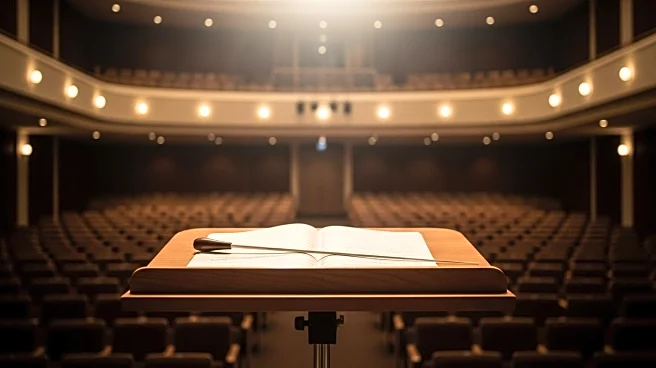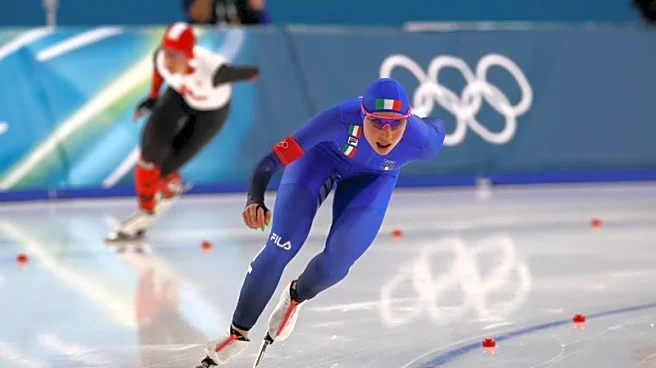What is the story about?
What's Happening?
Israeli conductor Lahav Shani has publicly addressed the humanitarian crisis in Gaza, stating it is 'impossible to remain indifferent to the suffering.' Shani's comments come after his concert with the Munich Philharmonic was canceled by Belgian festival organizers who questioned his stance on the Israeli government's actions. Despite the cancellation, Shani has reaffirmed his commitment to peacemaking and expressed gratitude for the support he has received from Germany and other international communities. The situation in Gaza remains dire, with ongoing conflict and humanitarian challenges exacerbating the plight of civilians.
Why It's Important?
Shani's remarks highlight the growing international concern over the humanitarian situation in Gaza and the broader implications of cultural figures taking a stand on political issues. His stance may influence public opinion and encourage other artists and cultural leaders to speak out on global conflicts. The cancellation of his concert underscores the intersection of politics and culture, illustrating how artistic events can become platforms for political expression. This development may impact diplomatic relations and cultural exchanges between countries involved in the conflict.
What's Next?
The cancellation of Shani's concert may prompt further discussions within the cultural community about the role of artists in political discourse. It could lead to increased scrutiny of cultural events and their organizers regarding political affiliations and stances. Additionally, Shani's continued advocacy for peace may inspire other artists to engage in humanitarian efforts or public statements, potentially influencing international diplomatic efforts to address the crisis in Gaza.
Beyond the Headlines
The situation raises ethical questions about the responsibilities of artists and cultural figures in addressing political and humanitarian issues. It also highlights the potential for cultural diplomacy to play a role in conflict resolution and peacebuilding efforts. As cultural figures like Shani speak out, they may contribute to a broader dialogue on the ethical obligations of public figures in times of crisis.
















